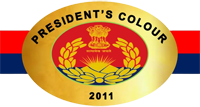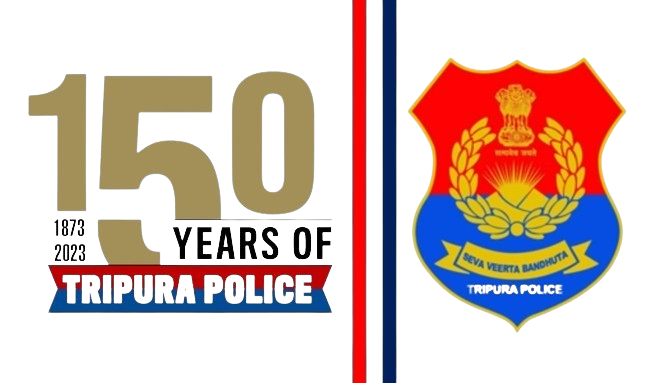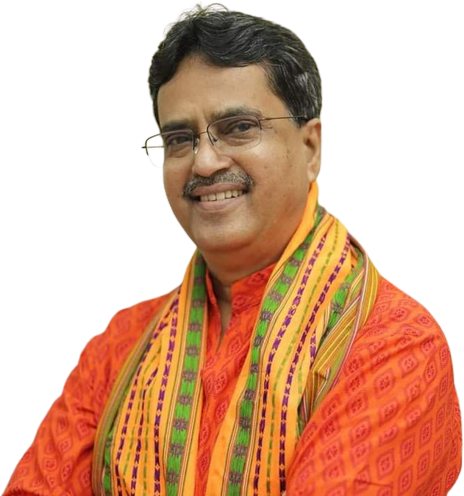History
The policing in Tripura are as old as the history of this state. During princely rule, there was a concept of indigenous police agency in each hill tribes, based on respective self governing institutions according to their primitive social customs and procedure that migrated to this land in successive waves from various uplands. Thus, the people of the State had freedom of their self administration. Their relation with the then monarchy was mostly confined to collection of taxes and periodical nazaranas.
The system of the then administration was feudal in nature and there was no chain of official hierarchical command. Since the king was all in all, there was no separate agency in the name of Police for maintaining law & order. The early kings depended on the military for internal administration, suppression of any rebellion by chieftains, war or conquest.
Policing under Manikya Dynasty:
Raja Ratna Manikya (1325 – 1350) was considered to be the first king of Tripura who brought a considerable reform in the administration as well as in the indigenous police system in the line of Muslim administrative system of Bengal during his regime. The Nawab of Bengal said to have conferred the title of ‘Manikya’ on him. He brought three experienced Bengalis with him to Tripura who helped in establishing administrative system on Muslim pattern. The plain Tripura, then known as Tipperah, and its adjacent areas were under direct administration of the King. There were ‘Binidias’, special type of Police, under direct control of king, who acted as conduits to inform tribal chiefs about the orders/formans of the King and also were empowered to arrest any person for defiance of king’s order etc. The distant regions were ruled through regional administrators known as ‘Laskars’ who exerted their authority as Police officers in collection of taxes from tribal chiefs.
Raja Amar Manikya introduced the title of ‘Thanadars’ during last part of 16th century and exercised authority as provincial ruler. There was no written code, no court of law and no jail before 1870.
When the British domination and supremacy started on the erstwhile kings in 1761, the kings had to take permission from the British ruler to purchase or to collect even a rifle.
However, modernization of administrative system in ‘Independent Hill Tipperah’ began following several administrative reforms introduced by Raja Birchandra Manikya in the line of British administration during his regime from 1862 to 1896. The courts of Tripura dispensed justice according to primitive system of equity and good conscience till 1873-74, since there was no judicial procedure. Afterwards, Tripura King adopted Acts of Government of Bengal and Acts of British India. Nine enactments were passed in 1873-74 including Criminal Procedure Code, Police Code, Cattle Trespass Act and Civil Procedure Code etc.
According to first Annual Administrative Report of Political Agency of Hill Tipperah in 1872, the Raja’s police force consisted of about 200 men. There were 4 Darogas, 37 Jamadars/other officers and 173 burkandazes in the Civil Police. The numbers of Thanas and Outposts were 8 and 10 respectively.
The administrative report of year 1884-85 reveals that the Magistrate of Agartala was in-charge of entire police force of the State with three head quarter location at Agartala, Sonamura and Kailashahar, each headed by one Inspector who reported to the Magistrate of Agartala. In accordance to the rules in force in British territory, each Thana was placed under the charge of a Sub-Inspector and each Outpost under a Jamadar or Head Constable. There were all together 18 Thanas and 4 Outposts in the state.
The subsequent Annual Reports revealed that the number of Thanas and Outposts and also total strength of Police force were subject to variation according to prevailing law and order situation and other issues. In general, each Thana was having average strength of 1 officer and 5 men.
In addition to the main duties of maintenance of peace and law & order, the police officers/men were Collectors of Forest revenue, Cotton revenue, Chowkidari tax and in some places of Land revenue also. There was also a contingent of ‘Binindias’ or ‘Tipperah Burkandazes’ whose main duty was to serve processes on the hill people. No regular system of village police was in existence in the kingdom. Chowkidars as a rule were employed only in the headquarter stations. Crime and other occurrences of interior areas were reported by the village head men.
In 1886-87, 4 new posts of Head Police officers with the designation of ‘Superintendent’ were created to control and supervise Police and cotton departments and also for revenue work of 4 divisions who were subordinate to the Sub-Divisional officers.
Maharaja Radha Kishore Manikya (1896-1909) brought separation of Police and Revenue Department. Police and Tehsil works of the state were performed by Police officers till 1905. In 1907, the Raja thoroughly reorganized the Police Department relieving Police from revenue collection. Mr. Ananda Mohan Guha was the first Superintendent of Police appointed by the Raja after such separation. Kumar Brajendra Kishore was made the head of police administration.
During the regime of Maharaja Birendra Kishore Manikya Bahadur (1909-1923) the State Civil Service was reconstituted on 31/03/1916 for recruitment of high officials of the state including the post of Superintendent of Police and Deputy Superintendent of Police. The new Arms Act and the Penal Code Amendment Act were passed in 1911. Mr. Kamini Kumar Sinha was the Superintendent of Police then. The Superintendent of Police had to go for extensive tour and inspect Thanas.
The proportion of the police force to population was 1 to 656 and that to area was 1 to 11.67 sq. miles. The total Police expenditure amounted to Rs.46, 977/-.
Maharaja Bir Bikram Kishore Manikya Bahadur was the last King who reigned from 1923 to 1947. This period was most turbulent period in the history of Tripura and India also. Political activities got new momentum. During communal riots in Bengal, large number of refugees entered the state causing demographic change and ethnic tension in some places. The Reang-revolt led by Ratan Moni Reang was suppressed by taking stern Police action. During his governance, the police and military force turned into an organised force. The Indian Criminal Law Amendment Act, 1908 (Act XIV of 1908) as amended up-to-date was adopted in 1942.
Policing after merger with India:
At the end of several hundred years of rule by 184 Kings, the erstwhile princely state came under the control of the government of India on Oct 15, 1949 according to a merger agreement signed between Kanchan Prabha Devi, the regent maharani, and C. Rajagopalachari, the Governor General of India. After merger, the State of Tripura became a centrally administered part C State under a Chief Commissioner. The Tripura Administration Order 1949 kept in force all earlier laws prevailing in Tripura. Tripura was one District Territory with one District Magistrate & Collector and one Superintendent of Police up to 31/08/1970.
Afterwards, 3 Districts were created with appointment of 3 DM & Collectors and 3 Superintendents of Polices as heads of Civil and Police Departments of the District. A separate post of Superintendent of Police, CID was created with Headquarters at Agartala. Tripura Armed Police was reorganized under a Commandant.
On attaining Statehood on 21st January 1972, the status of Chief Secretary of Tripura was upgraded to the status of Joint Secretary of Govt. of India. A common cadre of IAS, IPS & IFS cadres was created under the title Manipur-Tripura Cadre. The strength of IAS officer was increased to 21, IPS to 8 and IFS to 4.
In January 2012, Vice President of India conferred the President’s Colour on Tripura Police, the fourth Police force in India to receive this honour, for its success in combating the three decade old insurgency in the State and ensuring that there was no human rights abuse.
In 2012, on Statehood Day, the number of Districts has been increased to 8 from 4 to reach out to people for better service delivery. Subsequently Tripura got full-fledged separate cadre of IPS officers in 2015.
The gradual expansion and improvements in Police setup has culminated into the present full-fledged shape which brings transparency, citizen centric approach and rule of law as envisaged in Indian Constitution.
11081 reads










